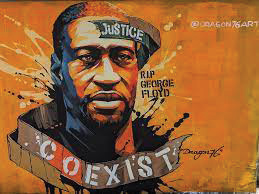
In June of this year, the Department of Justice provided evidence that the Minneapolis Police Department is still engaged in police brutality and racial bias practices, which have led to a continuation of police abuse that became evident during George Floyd’s murder in 2020.
As police departments blame the apparent rise in violent crime on a nationwide police staffing shortage, reformist Bradley Balko says law enforcement is delivering a stark message to the public, “To marginalized communities: You can have accountable and constitutional policing, or you can have safety. But you can’t have both.”
Balko, author of the “Rise of the Warrior Cop: The Militarization of American Police Forces” and the criminal justice newsletter “The Watch,” delivered his opinion in a guest essay in The New York Times.
He noted that the DOJ’s report identified “pervasive abuse, illegal use of force, racial bias, and systemic dysfunction in the Minneapolis Police Department.”
He also stated the city’s police officers still used excessive force and racial statements despite DOJ investigators’ being present during ride-alongs to observe the department’s culture.
Balko wrote that even after George Floyd’s death, the promise to eliminate racial profiling disappeared as the police hid evidence by elongating internal investigations or eliminating them entirely.
According to Balko, the findings of the DOJ review of the Minneapolis Police Department was not surprising, and was comparable to similarities of malfeasance within police departments in places such as Chicago, Baltimore, Cleveland, Albuquerque, New Orleans, and Fergusson, Missouri.
“Amid spiking nationwide homicide rates in 2020 and 2021, and a continuing shortage of police officers, many in law enforcement have pointed to investigations like these — along with “defund the police”-style activism — as the problem,” Balko wrote.
Balko believes that nationally, police have produced a narrative that alleges they are so constrained by social justice reforms that they cannot effectively perform their responsibilities.
He stated restrictions of police behaviors frustrate law enforcement to the point they resign from their careers.
“Fewer police officers, more crime,” is a sentiment that reflects this narrative, according to Balko.
Balko believes the lack of research accounting for the social costs of police brutality, and for the costs of decreased trust in law enforcement in general, must refute the misconception that less police equals more crime.
Although he admitted current academic studies cement the theory that more police leads to less crime, Balko believes the studies must quantify the long-term benefits of more peaceful and less aggressive alternatives to archaic policing styles and policies.
Balko cited statistics that showed a drop in policing in New York City in 2014 and 2015. During that time, reports of major crime in the city decreased. He pointed out the most violent cities in America also possess the most documented instances of police abuse.
In general, Balko stated in spite of police staffing shortages, 2023 is on track to have the largest drops in homicides in the nation’s history as the Covid pandemic wanes.
Ultimately, Balko deduced that as long as people do not or cannot trust the police, they will not assist in the resolution of neighborhood crime, instead they may resort to taking the law into their own hands.
Balko believes that if current policing cannot adhere to new standards of accountability, the continuing manifestation of distrust of police may cause cities to throw up their hands in defeat and let them leave.